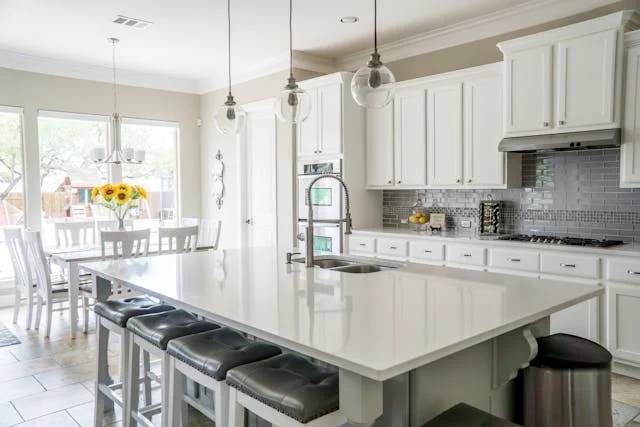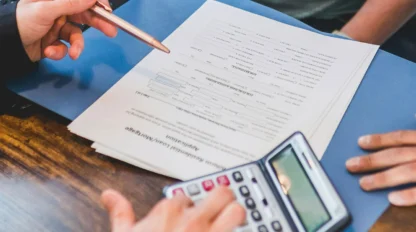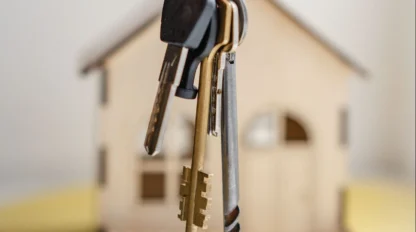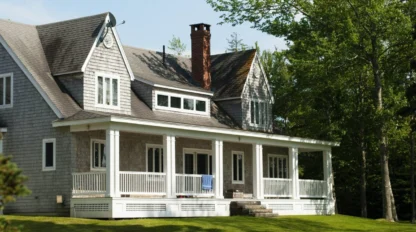What Is the Average Home Appreciation Rate?

If you own a home, you may be interested in how its value will grow over the next decade.
Your home’s appreciation rate can significantly influence your financial stability, tax advantages, and the equity you build in your home.
In this article, we’ll explore what the average home appreciation rate is, why it matters, and how it can impact your financial future.
What Is the Average Home Appreciation Rate in the U.S.?
Home appreciation is the rise in a property’s value over time, driven by factors such as market trends, location, neighborhood developments, improvements, and inflation.
Simply put, appreciation means your house becomes more valuable over time. So, if you sell it in the future, you might get more money for it than you paid.
When it comes to real estate, the average home appreciation rate is a key metric to understand.
The appreciation rate depends on supply and demand. If there are more people who want to buy homes in an area than there are homes available, the prices usually go up.
On the other hand, if there are more homes than people who want to buy them, the appreciation rate might be slow or even go down, which is called depreciation.

Why Should You Know the Average Home Appreciation Rate?
Understanding the average home appreciation rate is crucial for your financial planning. As your property’s value increases over time, so does your equity in the home.
This means more of your home’s value is yours, not the bank’s. This growth in equity can significantly boost your overall financial health.
However, keep in mind that this equity isn’t liquid—you can’t just turn it into cash without selling your home.
Knowing the average appreciation rate also helps you decide the best time to sell.
If you keep an eye on the market and understand how your property’s value might change, you can pick a time to sell to give you the most money.
Most people don’t buy homes to flip them quickly for a profit. For many, it’s a long-term investment, often part of a retirement plan. The goal is that by the time you’re ready to move or downsize, your home will have increased in value enough to give you a boost in financial security.
How to Know Your Home’s Appreciation Rate
While websites like the U.S. Federal Housing Finance Agency’s House Price Calculator can give you an estimate based on your purchase price and closing date, those are just rough estimates.
For a more accurate idea of what your home is worth, you’ll want to contact a real estate professional. They can compare your place to similar properties in your area that have sold recently.
The appreciation rate isn’t the same everywhere or even over time.
For instance, Black Knight said the national appreciation rate was 3.8% per year in 2019, just below the 25-year average of 3.9%. But some places have seen way higher or lower rates.
From 1992 to 2023, California’s average annual appreciation was 6.4%, while Hawaii’s was 4.8%. On the other hand, Nevada had a 2.7% annual appreciation rate, and Maine was at 2.9% during the same period.
So, if you’re trying to figure out the average appreciation rate for a house over the years, you’ll need to consider both national and local trends, as well as the unique features of your property.

Factors Affecting Home Appreciation Rates
The rate at which a house appreciates over the years can vary widely based on many factors, like where it’s located, how big it is, what condition it’s in, and what’s happening in the real estate market. Let’s explore these factors individually:
Location
Homes in prime areas with good schools, low crime rates, and nearby amenities like shopping, dining, and parks tend to appreciate faster.
Cities and growing suburbs often see higher appreciation rates compared to rural areas.
Homes in areas prone to natural disasters, like floods or earthquakes, may appreciate more slowly than others too.
Property Size
Larger homes or those with more bedrooms and bathrooms often appreciate at higher rates compared to smaller properties.
The land itself can also play a significant role. Properties with larger lots may see more appreciation, especially in areas where land is scarce.
Condition
If your house is in rough shape or needs a lot of repairs, it’s not likely to go up in value as much as it could.
Issues like outdated plumbing, electrical systems, or structural problems can be a major turn-off for people looking to buy a house, leading to lower appreciation rates.
Regular maintenance and timely upgrades can boost your property’s value over time. Your home’s condition plays a big role in its value.
Keeping up with regular maintenance and making improvements when needed can help boost your property’s value over time.
Market Dynamics
The broader real estate market affects appreciation rates. Economic factors such as interest rates, employment rates, and inflation can influence demand for housing.
If there are too many houses for sale, buyers don’t have to compete as much, which can lower prices.
Neighborhood Changes
Changes in your neighborhood can impact your home’s value.
For example, the construction of industrial facilities, noisy highways, or other undesirable developments nearby can reduce the attractiveness of your area and slow down appreciation rates.
Local Economy
If the local economy is struggling, it can affect property values.
Declining job opportunities, business closures, and decreasing population growth can all contribute to slower home appreciation.
Grandview Will Give You a Fair Cash Offer
When you’re ready to sell your house, you can be sure of getting a fair cash offer from Grandview Homes. We ensure a smooth process regardless of your location. We also understand the local market dynamics.
You don’t need to worry about working with real estate agents or doing repairs and clean-up. You can close on the day you choose — in as little as 10 days, and get paid in cash.
Request a no-obligation offer and get it in as little as 24 hours by calling 866-260-2694.


